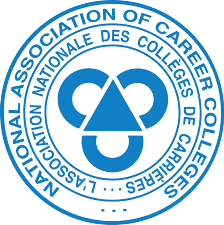Personal Support Worker (PSW) DE Certificate Program
Achieve Success Within a Canadian Healthcare Career in Only 26 Weeks
Personal Support Worker (PSW) DE Certificate Program
Personal Support Workers (PSW) DE assist with the tasks of daily living, and may work in long-term care facilities, home care settings, retirement homes, supportive housing, group homes, adult day programs, hospitals, and educational facilities. The range of services provided by a PSW is determined by the individual needs of each client and may include assistance with routine activities of living including personal care, mobility, home
management, meal preparation, family care, and assisting with social and recreational activities.
As front-line workers, Personal Support Workers (PSW) DE must develop a broad range of abilities beyond dexterity skills. They must provide not only for the comfort, safety, and well-being of their clients, but also demonstrate sensitivity and respect for those in their care. The attitude, abilities, and approach of the PSW are critical to the well-being and health of the people they support.
NEED HELP WITH YOUR TUITION?
We have launched the Alpha Career College Diversity Grant worth up to $1,400.00 CAD. This grant is dedicated to our newest wave of Personal Support Worker (PSW) DE Certificate students and is applicable to the tuition fees for this program. The grant will be applied after enrollment.

Personal Support Worker (PSW) DE
Job Opportunities
Personal Support Workers have the opportunity to work in:
- Long Term Care Homes
- Retirement Homes
- Hospitals
- Home Care
- Shelters
- Group Homes
- Schools
- Assisted Living Facilities
- Hospice Care Facilities
- Private Care
Alpha Student Experiences
"They're always supportive. You can lean on them anytime. It's a college that I would recommend everyone to attend. You will receive the best student experience and you definitely won't regret it."
Admissions Requirements
- Prior Education. This must be demonstrated through one of the following options:
- An Ontario Secondary School Diploma (OSSD) or equivalent
- Equivalent foreign credentials must be translated into English and assessed for Grade 12 equivalency by a recognized organization
- A score of 11 or more on the Wonderlic SLE (administered by Alpha Career College)
- English Language Proficiency. This must be demonstrated through one of the following options:
- NACC Technical Literacy Exam (with a passing score of 18) (administered by Alpha Career College)
- IELTS - International English Language Testing Services - Minimum average score of 6.0 with no subject test score lower than 5.5
- TOEFL –Test of English as a Foreign Language Internet-based test (IBT) – over 80, with the minimum of each component: Reading 20; Listening 20; Speaking 20; Writing 20.
- Background Check. A current clear Canada wide Police Clearance of Criminal Record with Vulnerable Sector screening is required within 45 days of commencement of study.
- Medical Report. A satisfactory medical report is required within 45 days of commencement of study. The form is provided by Alpha Career College.
*Approved as a vocational program under the Ontario Career Colleges Act, 2005
**
Accreditation: Upon successful completion of all graduation requirements, students are eligible to receive a
NACC Personal Support Worker (PSW) DE Certificate issued by Alpha Career College.
Program Overview
-
PSW 001 - PSW Foundations
The introductory module provides an overview of the scope of responsibilities of PSWs in a variety of settings. Students will learn about client-centred versus client-directed care; and emphasizing the individuality of the client and his/her relationship with family, friends and others. Key topics include work relationships, stress and time management, interpersonal skills and communications, including conflict resolution and problem-solving, and applicable legislation.
-
PSW 002 - Safety and Mobility
This module covers safety as it relates to both the client and the worker. One of the fundamental activities of the PSW is that of assisting the client with routine activities of living. Students will learn about risks of unsafe equipment or settings and appropriate actions to take when unsafe situations are identified. Topics include infection control methods, body mechanics, and transferring and lifting techniques using equipment to increase safety and reduce client anxiety.
-
PSW 003 - Body Systems
This module will introduce the student to the basics of anatomy and physiology. Students will gain an understanding of human body systems in order to apply that knowledge in their daily work as a Personal Support Worker. These body systems are: the musculoskeletal, digestive, urinary, integumentary, reproductive, cardiovascular, respiratory, nervous, and endocrine. Common disorders and age-related changes for each body system will also be covered.
-
PSW 004 - Assisting with Personal Hygiene
PSW’s assist clients with all activities or routines of daily living. Students will learn how to care for the ill, disabled, injured and/or confused client. Frailness, dignity and levels of dependence will be considered. Personal hygiene, mobility considerations and involves personal safety, self-esteem and dignity. The foundation of this module is humanistic health care.
-
PSW 005 - Abuse and Neglect
This module introduces students to the concepts of violence and abuse, including its possible signs,and the appropriate actions and legal requirements if abuse is suspected. Personal beliefs and attitudes about family violence and abuse are examined, as is the concept of worker abuse of the client and, abuse of the worker.
-
PSW 006 - Nutrition
In this module students will learn to assist the client with their nutritional needs, household activities, and household management according to client preferences, comfort, and safety within employer guidelines as required. Nutritional needs include planning balanced nutritious menus, preparing shopping lists, shopping, safe handling of food, storage, and specific cooking techniques. Special dietary needs of infants, pregnant and nursing mothers, persons with specific conditions (diabetes, feeding tubes, etc.), as well as persons with specific cultural and religious preferences will be addressed. Students will have the opportunity to practice and demonstrate skills in a lab environment.
-
PSW 007 - Care Planning
This module builds on the materials presented in the introductory module PSW Fundamentals. It
identifies the support to be provided and the significance of the support to the client, and of the need for the support.
-
PSW 008 - Assisting the Family/ Growth and Development
Students learn to understand family characteristics in terms of structure, functions, roles, lifestyles and relationships. The influence of cultural values, practices, religious beliefs as well as the effects of illness, stress, and disability on family relationships will be emphasized as central to the PSW’s ability to provide effective support.
-
PSW 009 - Assisting The Dying Person
In this module students learn about hospice, palliative and end-of-life care, the integration of a palliative approach to care, ways of being, communication and practical strategies to provide psychosocial support and physical comfort care for both the person and their family.
-
PSW 010 - Assisting With Medications
Within the PSW scope of practice, students learn about medication administration versus assistance. They gain basic knowledge of the drugs used in the treatment of common diseases and disorders including use, classification, effects, and routes of administration.
-
PSW 011 - Cognitive and Mental Health Challenges and Brain Injuries
This module introduces students to common psychiatric conditions such as affective disorders, schizophrenia, substance abuse, cognitive impairment, and brain injury.
-
PSW 012 -Health Conditions
Students are introduced to ongoing conditions and basic concepts of assistance, as well as the general effects on the person of common disabilities, conditions and diseases. Students will gain skill in the necessary techniques while focusing on the importance of providing support safely, effectively and comfortably.
-
PSW 013 - Gentle Persuasive Approaches (GPA®️) in Dementia Care
Gentle Persuasive Approaches (GPA®️) in Dementia Care is a multi-disciplinary education program designed for everyone who interacts with older adults in the workplace. Participants are guided to fully understand responsive behaviours to be able to respond effectively and appropriately in a workplace setting.
Please see AGE's website https://ageinc.ca/ for more information.
-
PSW 014 - Clinical Placement (Community)
Clinical placement provides students with an opportunity to practice their new skills in a work setting. Students gain experience in a wider range of PSW skills, become more self-confidant, and may receive offers of employment from the placement site. site. In this module, the students will spend time working in a community setting under the supervision of a preceptor provided by the host site.
-
PSW 015 - Clinical Placement (Facility)
Clinical placement provides students with an opportunity to practice their new skills in a work setting. While on placement, students gain experience in a wider range of PSW skills, become more self-confidant, and may receive offers of employment from the placement site. In this module, the students will spend time working in a facility setting for 100 hours under the supervision of their instructor and under a preceptor provided by the host site for an additional 100 hours.
Register Now For The Personal Support Worker (PSW) DE Program to Begin Your Journey at Alpha Career College
The Alpha Career College Blog

USEFUL LINKS
PROGRAMS
OUR PARTNERS
Alpha Career College is registered under the Ontario Career College Act, 2005, by the Ministry of Colleges and Universities (MCU). Check Registration
Alpha Career College Personal Support Worker Program DE Certificate Program is Accredited by the National Association of Career Colleges (NACC). Check Registration





